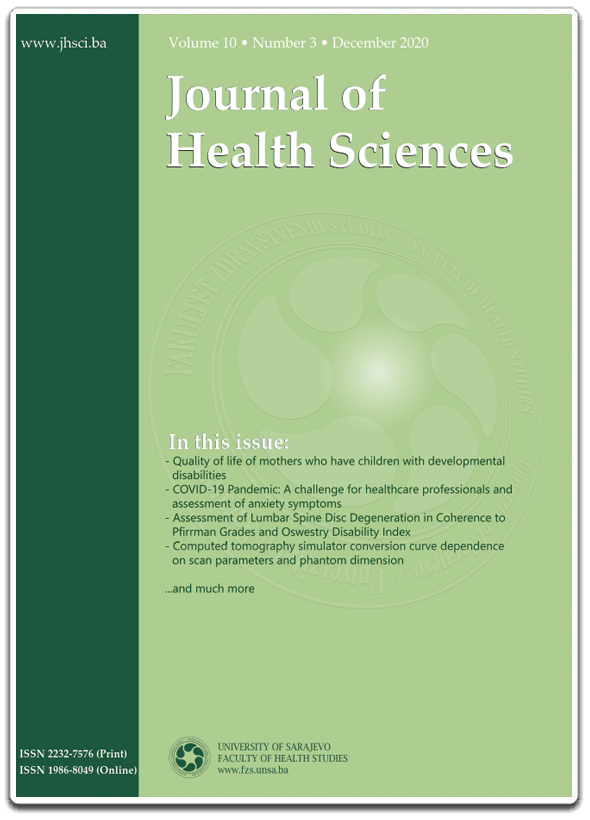Anxiety Symptoms Among Lebanese Health-care Students: Prevalence, Risk Factors, And Relationship With Vitamin D Status
DOI:
https://doi.org/10.17532/jhsci.2021.1191Keywords:
Anxiety, health-care students, Vitamin D, prevalence, risk factorsAbstract
Introduction: Various emotions may arise in the context of extensive curriculum of paramedical education. Their association to biological aspects such as Vitamin D status is to be examined with regard to the prevalence of Vitamin D deficiency in the region. This research aims to evaluate the prevalence of anxiety symptoms and their relationship with Vitamin D status among Lebanese health-care students.
Methods: A total of 157 university students aged 18-25 years old completed a questionnaire related to medical and psychiatric history, nutritional intake, lifestyle habits, and social difficulties. Anxiety symptoms were assessed by Hamilton Anxiety Rating Scale. Vitamin D serum levels were analyzed using ELISA technique.
Results: Anxiety symptoms were present in 37.5% of students with 2.5% presenting severe anxiety. Anxiety symptoms were significantly associated to health problems (p = 0.0038), social difficulties (p = 0.001), and a family history of psychiatric disorders (p < 0.0001). Low Vitamin D levels were detected in 49.3% of participants; 77.5% having a Vitamin D insufficiency while the rest presenting a Vitamin D deficiency. Students with anxiety symptoms had significantly lower Vitamin D levels as compared to those having no anxiety manifestations (17.9 ng/mL ± 7.9 vs. 24.2 ng/mL ± 9.9, p = 0.0023). However, no significant correlation was registered between anxiety symptoms scores and Vitamin D levels.
Conclusion: Anxiety symptoms were found to be relatively prevalent among health-care students and associated to low Vitamin D levels. Further studies are warranted to clarify the beneficial effect of Vitamin D supplementation in the prevention, management, and treatment of anxiety symptoms among health-care students.
Downloads

Downloads
Published
License
Copyright (c) 2021 José-Noel Ibrahim, Léa Audi

This work is licensed under a Creative Commons Attribution 4.0 International License.










